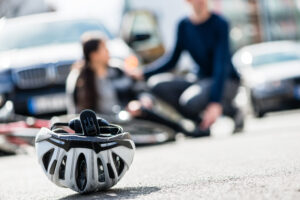Cycling is a popular outdoor activity enjoyed by people of all ages in Pennsylvania. From scenic trails to challenging terrains, the state offers a diverse range of cycling opportunities. However, safety should always be the top priority for cyclists, and one of the most crucial safety gear for cyclists is a helmet. Wearing a properly fitted helmet can significantly reduce the risk of head injuries in case of accidents. In this article, we will guide you through the process of choosing the right helmet for cycling in Pennsylvania, including the legal requirements and best practices to ensure your safety on the roads.
The Importance of Helmets:
Before delving into the specifics of selecting a helmet, let’s highlight the importance of wearing one. According to statistics, a significant number of cycling-related injuries involve head trauma. Helmets act as a protective barrier between the head and the hard surfaces, absorbing and distributing the impact force during a crash. By wearing a helmet, cyclists can minimize the severity of head injuries, which can potentially save lives and prevent long-term complications.
Legal Requirements for Helmets in Pennsylvania:
In Pennsylvania, the law mandates helmet usage for certain age groups. The Pennsylvania Vehicle Code states that any person under the age of 12 years must wear a helmet while riding a bicycle on public streets, roadways, and bike paths. This legislation is designed to safeguard young riders and instill good safety habits from an early age.
While the law only applies to children under 12, it is highly recommended for cyclists of all ages to wear helmets. Even seasoned riders can encounter unexpected hazards on the road, making a helmet a wise investment in personal safety.
Choosing the Right Helmet:
Now that we understand the significance of helmets, let’s explore the essential factors to consider when choosing the right one:
- Fit and Size: A helmet should fit snugly on your head without being too tight or too loose. Measure the circumference of your head just above your eyebrows to determine the size you need. Sizes may vary between brands, so it’s essential to try on the helmet before making a purchase.
- Certification: Look for helmets that meet safety standards set by organizations such as the Consumer Product Safety Commission (CPSC) or the Snell Memorial Foundation. Helmets certified by these organizations undergo rigorous testing to ensure their effectiveness in protecting against impacts.
- Type of Helmet: There are several types of helmets available, including road helmets, mountain bike helmets, and multi-use helmets. Choose a helmet that aligns with your cycling style and provides the necessary features for your intended use.
- Ventilation: Pennsylvania summers can be hot and humid, so selecting a helmet with proper ventilation is crucial. Ventilation not only keeps you cool but also enhances comfort during longer rides.
Retention System: The helmet’s retention system, typically a chin strap, keeps the helmet securely in place during a crash. Ensure that the straps are adjustable and easy to fasten.
Weight: A lighter helmet can reduce strain on your neck during extended rides. Opt for a helmet with a balance of weight and safety features for maximum comfort.
Proper Helmet Maintenance:
Once you’ve selected the perfect helmet for your cycling adventures, it’s essential to maintain it properly:
- Regular Inspections: Before each ride, inspect your helmet for any signs of damage, such as cracks, dents, or loose parts. If you notice any issues, replace the helmet immediately.
- Cleanliness: Clean your helmet regularly with mild soap and water to remove sweat, dirt, and bacteria. Avoid using harsh chemicals that may compromise the helmet’s integrity.
- Storage: Store your helmet in a cool, dry place away from direct sunlight and extreme temperatures. This will help preserve its quality and extend its lifespan.
Education and Advocacy:
In addition to wearing helmets, educating cyclists about road safety and advocating for safer cycling infrastructure play a crucial role in preventing accidents. Cycling clubs, local authorities, and advocacy groups in Pennsylvania often organize workshops and awareness campaigns to promote safe cycling practices. By participating in these initiatives, you can enhance your understanding of cycling safety, learn about traffic rules, and become a responsible cyclist.
Moreover, advocating for better cycling infrastructure can lead to the creation of dedicated bike lanes and improved road conditions, making cycling a safer and more enjoyable experience for everyone. Your involvement in these efforts can contribute to building a more bicycle-friendly Pennsylvania.
Encourage Others:
As a responsible cyclist who understands the importance of helmets, you can set an example for others around you. Encourage your friends, family, and fellow cyclists to wear helmets while riding. Share your knowledge about helmet safety and its potential life-saving benefits. By raising awareness and promoting helmet usage, you contribute to a culture of safety within the cycling community.
Cycling in Pennsylvania offers an array of thrilling experiences, but safety must never be compromised. Wearing a helmet while cycling is not only required by law for young riders but also a smart choice for cyclists of all ages. By selecting the right helmet that fits well, adheres to safety standards, and meets your cycling needs, you’re taking a vital step towards protecting yourself on the roads.
Remember, choosing the right helmet is just the beginning. Regular inspections, proper maintenance, and responsible cycling practices further enhance your safety. So, whether you’re an avid cyclist or a novice, invest in a quality helmet and enjoy the beautiful landscapes of Pennsylvania with peace of mind.
At McDonald At Law, your safety is our top priority. If you or a loved one has experienced a cycling-related accident in Pennsylvania, our experienced personal injury attorneys are here to help. Contact us today for a free consultation to discuss your case and understand your legal rights. Stay safe, wear your helmet, and let us handle the rest!
